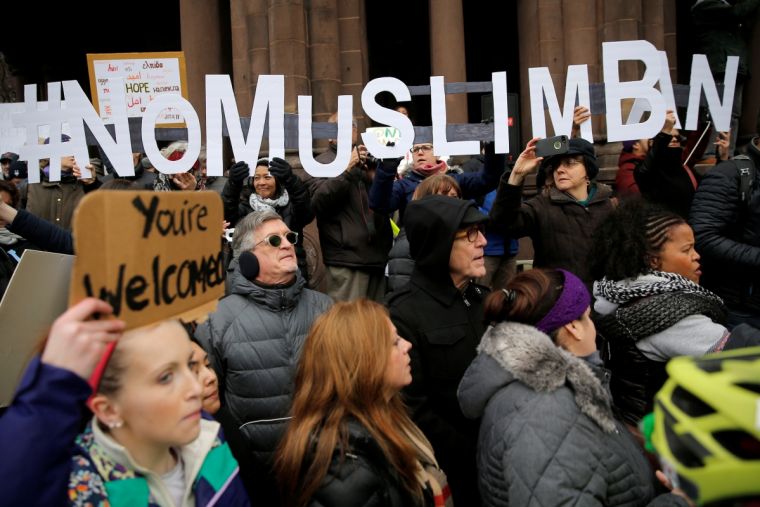Donald Trump's Muslim ban could be reinstated within just two weeks
Donald Trump's so-called Muslim ban could be reinstated in just two weeks after the White House asked the US Supreme Court to intervene.
The lower courts have blocked the travel ban on people from some Muslim majority countries after they found it discriminatory but applications have now been made the top court in America.

'We have asked the Supreme Court to hear this important case and are confident that President Trump's executive order is well within his lawful authority to keep the nation safe and protect our communities from terrorism,' said Justice Department spokeswoman Sarah Isgur Flores.
'The president is not required to admit people from countries that sponsor or shelter terrorism, until he determines that they can be properly vetted and do not pose a security risk to the United States.'
The ban could be reinstated within the next two weeks after Trump's administration filed emergency requests to overturn the previous blocks immediately.
That ruling is expected imminently and after that the court could choose hear a full appeal from the administration in October.
But the move is likely to face similar opposition with the American Civil Liberties Union tweeting:
We've beat this hateful ban and are ready to do it again, @realDonaldTrump. #NoMuslimBanEVER
— ACLU National (@ACLU) June 2, 2017
Karen Tumlin, legal director of the National Immigration Law Center, told Associated Press: 'Again and again, our nation's courts have found that President Trump's Muslim ban is unconstitutional. We will continue to defend our plaintiffs' right to live free from fear of discriminatory treatment by the federal government.'
It comes after Trump first tried to impose the executive order weeks after he was elected. The move caused chaos at airports with nationals from Somalia, Iran, Iraq, Syria, Sudan, Libya and Yemen barred form entry for 90 days and the entire refugee programme halted for 120 days.
That was blocked after a legal challenge so Trump tried to resinstate a different order, removing Iraq from the list of target countries.
However that too was blocked with a federal judge in Hawaii citing 'questionable evidence' that move was a matter of national security.
A move to lift the block was denied by a judge in Virginia saying the government's argument it was a matter of security was a 'secondary justification for an executive order rooted in religious animus and intended to bar Muslims from this country'.
The US Supreme Court is now tilted towards the conservatives with the appointment of Judge Neil Gorsuch this year.
However it would only take one of the typically conservative-siding judges to switch for the appeal to fail.
Central to their debate is whether the order intends to discriminate against Muslims.











